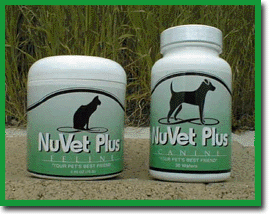QuestionI realize you are here as a Chi expert, but I read one of your responses about a Chi that had sago poisoning and was impressed. Yesterday (10-23-10) our 3 year old, 70 lb pit/hound mix chewed up some sago seeds. We noticed this around 3-4 PM, but didn't think about it until dinner time, 6 PM when he refused his dinner. He had thrown up a few times in the yard, but it was mostly pieces of a raw hide and little bits of the sago seed covering. Growing concerned, we administered 7 cc hydrogen peroxide to induce vomiting. He threw up a few times, which was mostly white foam. Called two ER vets, one said just to monitor him, the other said to bring him in right away, but to bring $300 cash! Which we don't have (hubby has been unemployed for 3 years and our house is in foreclosure). We opted to monitor him. Pulse was normal 88 BPM and regular, pupils normal - no dilation or pin points, no sores in his mouth. Checked on him all through the night and he's been fine. Fed him last night's dinner this morning and he ate it, although slowly. No more vomiting. Not sure if he has diarrhea or not, he is a "private pooper". He's acting totally normal today. But after reading your response to the Chi owner about possible liver damage, we're worried that something could show up down the line.
Other than monitoring him, is there anything we should do for him? Anything we should NOT do? Please help. I really cannot afford a vet visit right now. I don't get paid for another two weeks and have no money anywhere! Can you give me any advice, please? thank you so much in advance.
AnswerHi Judie...
It's very upsetting to hear that this has happened to your dog.
Based on the information that you've given me, the following are my thoughts: The ER veterinarian that told you to just monitor your dog was either negligent in his duties or has no familiarity with sago palm poisoning. Monitoring pulse, checking his pupils and checking for sores in his mouth do nothing to monitor the severe damage that any part of a sago palm does to the liver. I highly doubt that administering hydrogen peroxide so many hours after a dog chewed sago palm seeds was medically helpful either. At the ER they would have used charcoal to bind any trace of toxins from your dog's system. However, unfortunately, the period of time between the consumption of the sago palm seeds and when he refused dinner was probably enough time for liver damage - however, we don't know for sure because we have no blood panels to refer to for monitoring purposes.
From all of my research I have learned that secondary problems most certainly can show up down the line and often do - in other words, a dog that is acting normal and appears to be recovering from an initial episode of palm poisoning can present with life threatening problems later. That's what is so scary and frustrating about sago palm poisoning. I would like you to take a look at this website and read specificially where it says "Categories of Poisonous Plants by their Active Ingredients". Skip right down below the numbered items and start reading about major organ damage. You'll note that they're talking about poisonous plants in general here and not specifically the sago palm which is so highly toxic.
You don't say which of my responses that you read on AllExperts that concerned sago palm poisoning, but I would like you to go into the archives of questions and answers and take a look at my responses to Ashleigh dated around 7/19/10 and then again on 7/14/10. I have given every bit of advice and information that I have in those responses and rather than repeating them again here (way too lengthy), you can read them there. Normally, when I have already answered questions that someone is asking again, I just send an automatic message telling you to check the archives for previous responses to your question, but I felt compelled to reply to you and add anything else I could think of.
I think it's very important that you get this dog on a liver friendly diet. Liver friendly diets should consist of foods that are easy on the liver - low sodium cottage cheese, squash, white fish (like cod), plain yogurt, possibly white chicken, etc. You can contact me later for a full list of liver friendly foods if you can't find them yourself on a google search or if Dr. Dodds doesn't provide you with them. You'll see in my response to Ashleigh that I suggested that she consult with Dr. Jean Dodds and I give contact information in my reply to her. Since you have little money for veterinary care, contacting Jean Dodds is something that you should do immediately. She does not charge for consultations, but she does ask for a donation so that she can further her research. I ask you to honor that request and send a donation when you can (the suggested amount is quite small) if you do consult with her. You have NO blood panel results to provide her, etc., so she will probably only be able to guide you insofar as diet and supplements - supplements like Milk Thistle, Sam-E, etc. I talk about those some in my response to Ashleigh also.
You should also look into CareCredit at http://www.carecredit.com/vetmed/
You also might want to look into the suggestions on this site and see if any of them will work for you:
http://www.humanesociety.org/animals/resources/tips/trouble_affording_veterinary...
I think that it really is important that you have your dog seen as soon as you can by a qualified veterinarian that is familiar with sago palm poisoning and get a blood panel run to see where you are now. You may have to run blood panels off and on for awhile to monitor how your dog is doing and to make sure that there has been no damage to major organs. Equally important is to lessen the work load on his liver by feeding a liver friendly diet.
If I can be of any further help or if you need clarification on anything, please do not hesitate to contact me again. I will be holding positive thoughts for you and your dog.
Jo Ann

 Chihuahuas teeth
QuestionHi,
I have a 7 year old small chihuahua. She ha
Chihuahuas teeth
QuestionHi,
I have a 7 year old small chihuahua. She ha
 Chihuahua mystery sickness - Vet stumped
QuestionHi, My 1 year and 10 month old chihuahua, Frank
Chihuahua mystery sickness - Vet stumped
QuestionHi, My 1 year and 10 month old chihuahua, Frank
 luxating patella
QuestionHi! I have a 1 1/2 yr old Chihuahua named Kelsi
luxating patella
QuestionHi! I have a 1 1/2 yr old Chihuahua named Kelsi
 Chi and seizures vs spasms; nutritional supplements for seizures:
QuestionWe just recently adopted an 8 yr old Chi and he
Chi and seizures vs spasms; nutritional supplements for seizures:
QuestionWe just recently adopted an 8 yr old Chi and he
 Eyes
QuestionStormi
QUESTION: Yes i have a 7 week chi
Eyes
QuestionStormi
QUESTION: Yes i have a 7 week chi